5 of the best dog breeds for people with allergies and anxiety
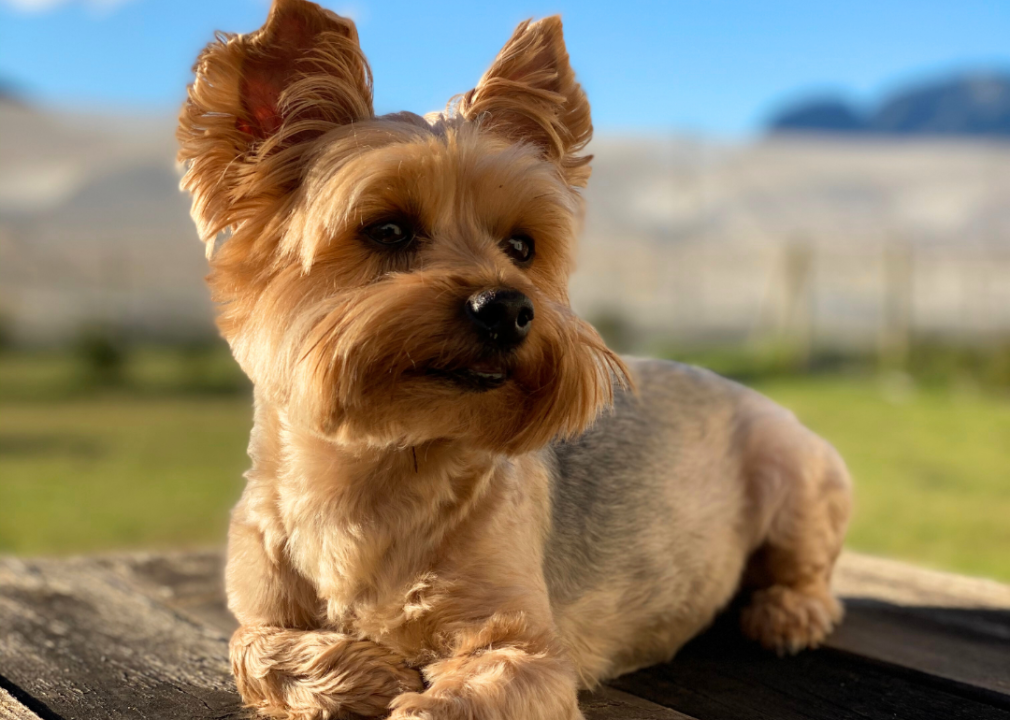
Canva
5 of the best dog breeds for people with allergies and anxiety
A Yorkshire terrier in the sun.
Raj had Yorkshire terrier Cinnamon to help get him through his romantic woes on “The Big Bang Theory.” Elle Woods’ Chihuahua, Bruiser, was always by her side. Even Shaggy had Scooby-Doo to help him through some spine-tingling moments. When the going gets tough, people often find comfort in a furry friend.
Anxiety is one of the most common mental health issues people face, affecting about 301 million people, according to the Institute for Health Metrics and Evaluation at the University of Washington. Given its prevalence, many people are looking for sources of emotional relief, including the companionship of an emotional support animal, like a loving dog or cat.
Psychiatric experts say ESAs can help people with anxiety improve their sleep, better recognize and regulate their emotions, strengthen their sense of purpose and engagement in life, and foster more social connections. Though ESAs aren’t service animals, which are trained to do specific tasks for their disabled owners, these animals also provide a much-needed but invisible benefit: mental support.
As the world increasingly prioritizes emotional and mental health, more and more people are turning to ESAs as one way to help manage their issues. Unfortunately, some 10%-20% of the world’s population has dog or cat allergies, meaning many people who could benefit from an emotional support dog may not think it is an option for them. But there is a silver lining.
Although no dog breed is completely hypoallergenic—since allergens are present in dog dander, urine, and saliva, and pet hair can also collect other allergens like mold, dust mites, and pollen—some breeds have coats that shed less or far less than others. This may make them more suitable companions for people with allergies.
Pettable consulted the American Kennel Club and psychiatric sources to determine which dog breeds could be a good fit for people with both anxiety and allergies.
![]()
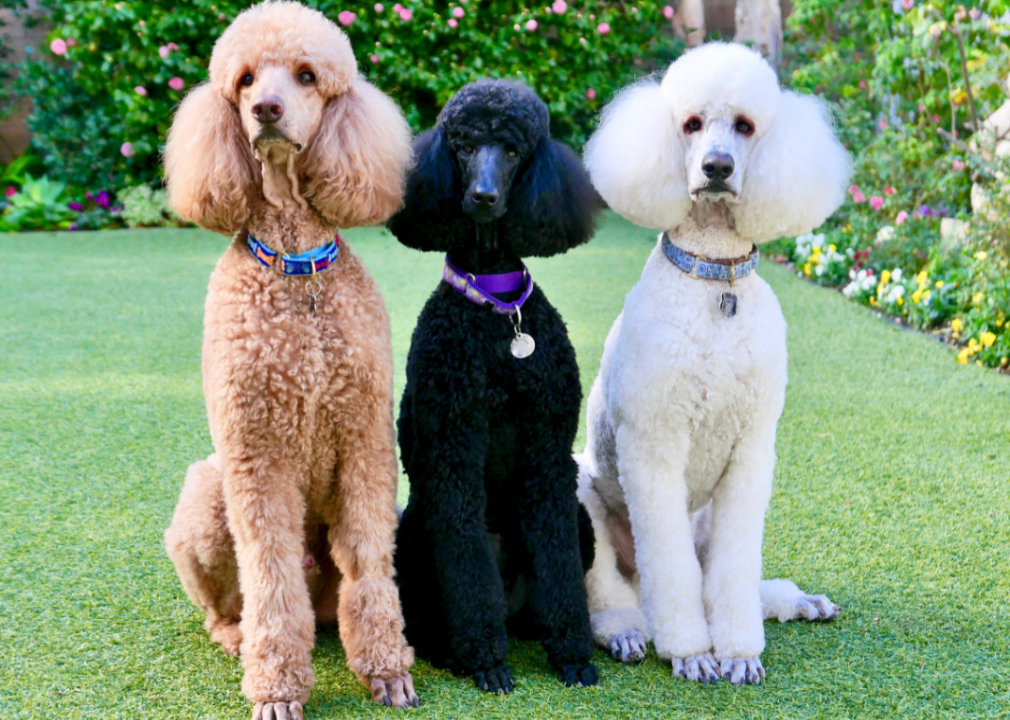
Canva
Poodles
Three poodles.
As aforementioned, poodles are not truly hypoallergenic, but they do shed a lot less than other breeds. Poodles can be excellent support animals because they are highly trainable, friendly, and form strong bonds with their humans. The AKC also notes that poodles are typically very affectionate with family members, good with young children, and often get along well with other dogs. As a bonus for people with anxiety, poodles have an extremely protective nature. They are often pretty adaptable, meaning they can likely handle changes to your daily routine or fare well in stressful situations. For people living in small living quarters, it may be preferable to opt for a miniature poodle.
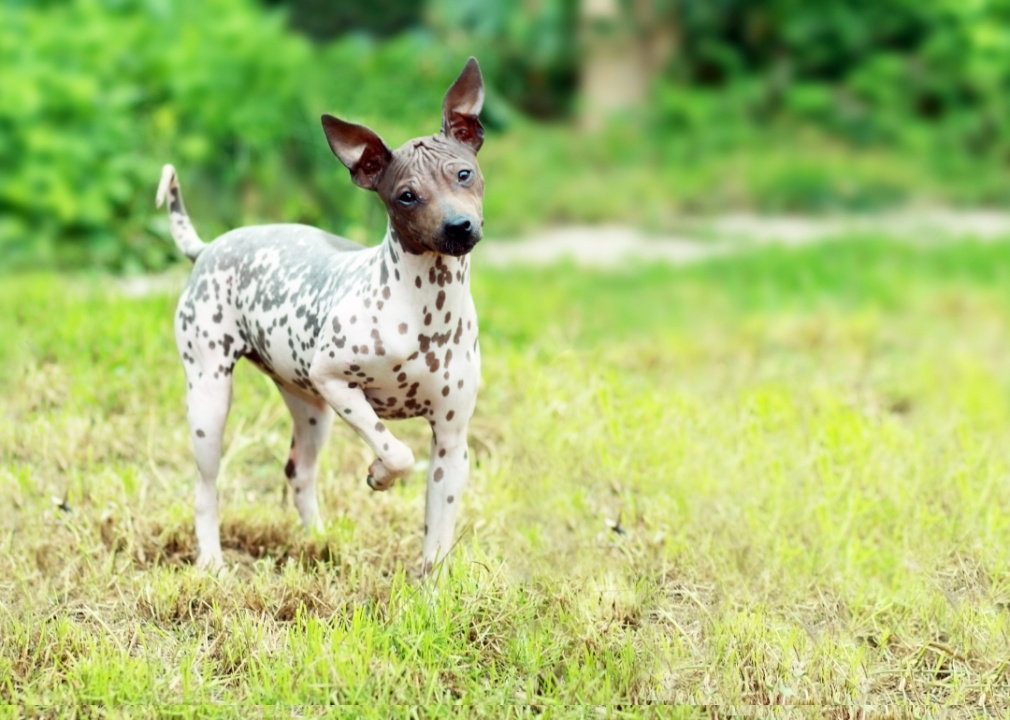
Canva
American hairless terriers
American hairless terrier.
It may be fairly obvious why American hairless terriers are a good fit for people with allergies: they’re hairless. Still, this doesn’t mean someone may not be allergic to their saliva or urine. An American hairless terrier can be a good candidate for an ESA because they are generally very affectionate with family members and patient and tolerant with young children. This breed may also be able to help people with anxiety, as these dogs tend to display a high level of emotional awareness and empathy.
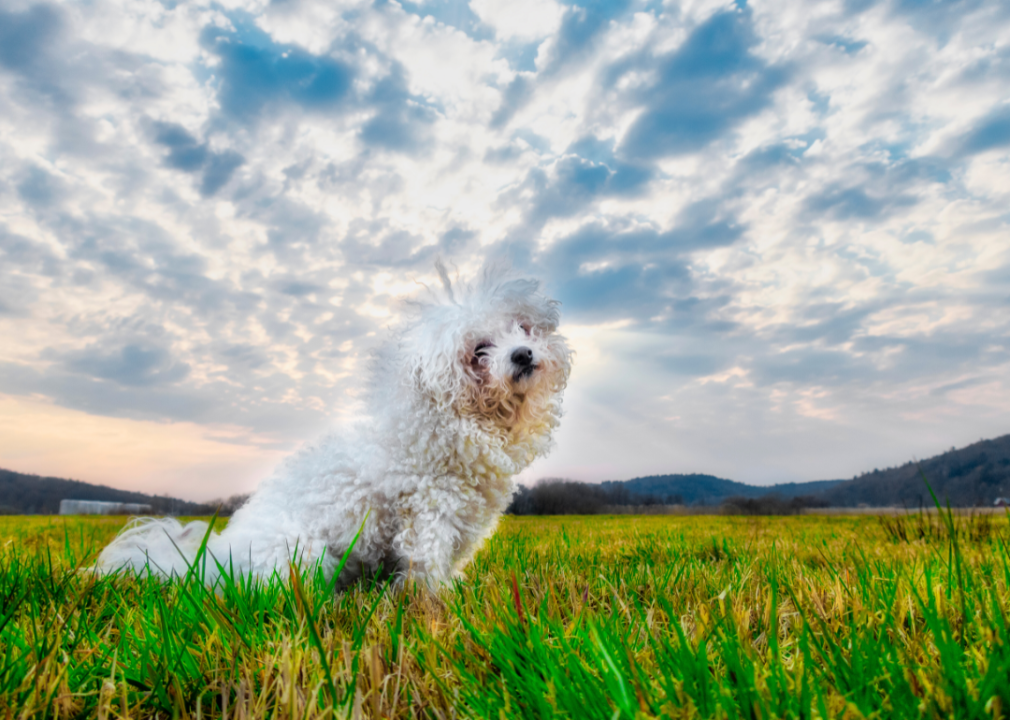
Canva
Bichon frisés
A Bichon frisés in the grass.
Like poodles, bichon frisés fall into the little-to-no-shedding category. This breed has several qualities that may benefit people with anxiety, particularly its warm, easy-going nature and tendency to like staying close to family members. Bichon frisés also make great watchdogs and are an overall intelligent, curious, and confident breed. Given their smaller size and love of close contact, bichon frisés can also make superb snuggle buddies and lap dogs.
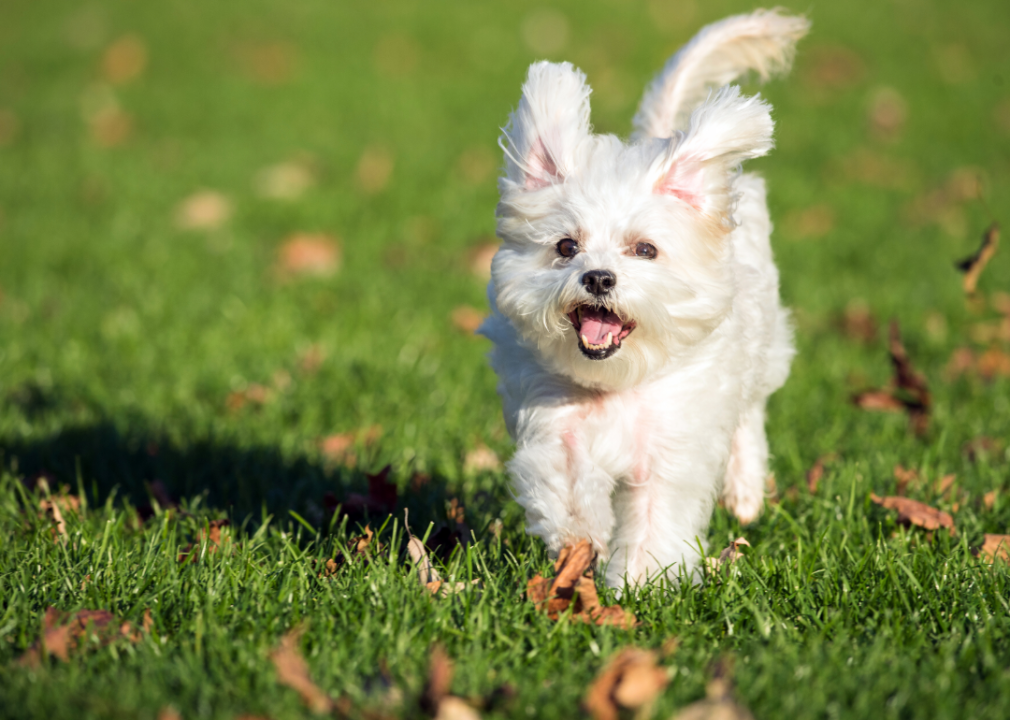
Canva
Maltese
A Maltese running in the grass.
Maltese are typically very affectionate and don’t shed as much as many other breeds. This breed often forms an especially strong bond with one person, making them good potential companions for people living alone. Their empathetic nature also makes them especially good for helping those experiencing anxiety or depression. As a smaller dog breed, Maltese can be convenient travel companions, making it even easier to always have them near.
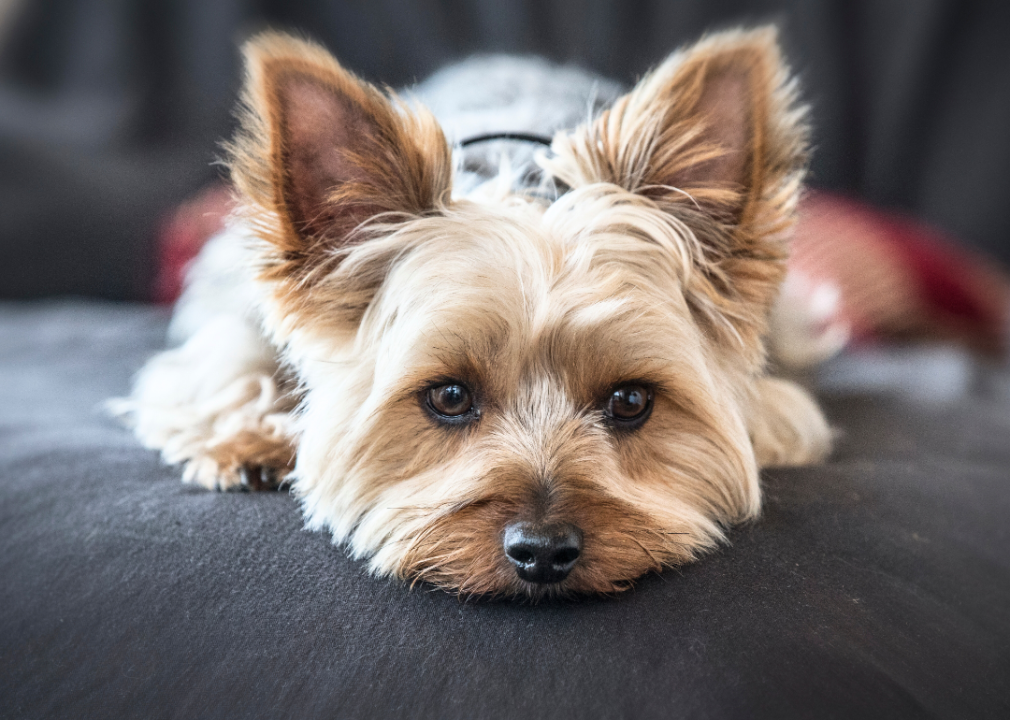
Canva
Yorkshire terriers
A Yorkshire terrier on a couch.
Despite their coat’s appearance, Yorkshire terriers actually aren’t big shedders. The AKC notes that Yorkies possess many traits that may make them good ESAs, like being extremely affectionate, open to strangers, adaptable, highly trainable, and protective. Yorkies also tend to be very curious and energetic. They also require lots of mental stimulation, which could nudge their companions to exercise more, get out and explore nature, or embark on adventures. The small stature of Yorkies can also be a perk for people living in small spaces and makes them good plane companions.
Story editing by Carren Jao. Additional editing by Kelly Glass. Copy editing by Paris Close. Photo selection by Lacy Kerrick.
This story originally appeared on Pettable and was produced and
distributed in partnership with Stacker Studio.
